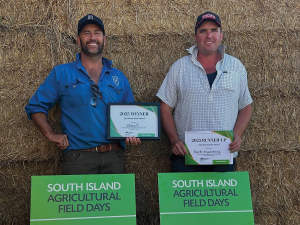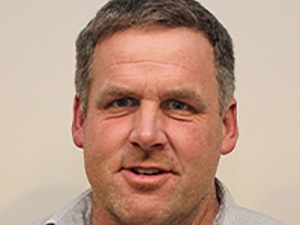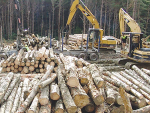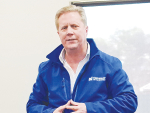Like many manufacturers around the world, European agricultural machinery and tractor manufacturers are currently operating in a difficult market environment. But they are heading to the world’s largest agricultural machinery event in Hanover next month with a degree of cautious optimism.
Looking back on the past six months, the effects of the downturn that began across the board in 2023 are still visible. While manufacturers producing in Germany still had to record a 28% decline in sales in 2024, this decline melted away to around 10% from January to June 2025, with all product segments affected by the market decline.
Dr Tobias Ehrhard, managing director of the VDMA Agricultural Machinery Association, says that although order intake rose noticeably in most product segments during the first half of 2025, the sales situation remains unsatisfactory.
“An upturn has been expected for some time, but it is not really materialising at the moment,” he says.
Interestingly, technology used in the milk production chain is currently performing particularly well, with milking, cooling, and feeding equipment showing above-average performance in the market. In most other segments, business continues to stagnate.
With machinery fleets aging, manufacturers are expecting demand to rise again in the medium term, but until then, one unpredictable factor of uncertainty remains – the US government’s tariff policy. The import tariffs are a major burden for European agricultural machinery and tractor manufacturers, given the industry is one of the top exporters to the US.
In July, the Trump administration imposed a 15% import tariff on imported goods, further exacerbated by an increased tariff on steel and aluminum products that was introduced on August 18. Since then, the steel and aluminum content of a machine has been subject to a 50% tariff.
Read More:
In real terms, this means that the previous flat-rate 15% rule has effectively been abolished. Currently, the steel and aluminum content of all machines must be recorded and customs duties paid accordingly. The basis for assessment is the purchase price of raw materials, creating a huge bureaucratic and cost factor, but also, an unprecedented distortion of competition.
In addition, compared to other branches of mechanical engineering, the agricultural machinery industry is particularly hard hit by this protective measure. Typically, the increased tariff rate in mechanical engineering affects an average of 30% of EU export volume, but in agricultural machinery it is 70% on average.
The agricultural machinery industry plays a key role in productivity and growth in global agriculture, with machines, equipment, and associated software systems “Made in Europe” used in more than 130 markets around the world.
In November, the focus at Agritechnica Hanover will be on technologies that combine power, efficiency, and sustainability. Linked to this are digitisation, automation, and automation. Minimising CO2 emissions from the operation of agricultural machinery and tractors is another goal for agricultural machinery manufacturers, who continue to develop climate-friendly alternatives to diesel fuel.
VDMA Agricultural Machinery comprises around 220 manufacturers of innovative agricultural machinery, tractors, and software systems. With 150,000 employees in Europe, around 40,000 of whom are based in Germany alone, the agricultural machinery industry is one of the leading sectors in mechanical and plant engineering.











